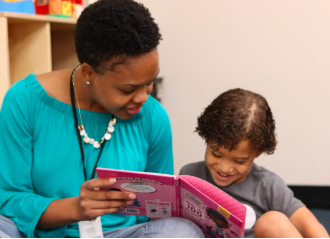A strong sense of identity helps children understand who they are, what they value, and how they relate to the world around them. From an early age, children begin forming ideas about themselves through experiences at home, in school, and with peers. Supporting the development of this self-awareness can promote confidence, belonging, and emotional well-being.
Why Identity Matters in Early Childhood
When children feel secure in their identity, they are more likely to approach learning and relationships with confidence. This foundation encourages them to express themselves clearly, make independent choices, and understand that they are valued. A positive self-image also helps children navigate challenges, celebrate differences, and show empathy to others.
Ways to Support Identity Development
-
Celebrate Individuality
Encourage children to share their likes, talents, and interests. Let them make choices when possible—whether it’s picking a storybook or choosing how to express themselves through art. Acknowledging their preferences and ideas reinforces the message that their voice matters. -
Include Family and Cultural Connections
Help children explore their heritage and learn about family traditions. Activities like storytelling, cooking familiar dishes, or sharing photographs can create pride in their background. Including diverse cultural elements in the classroom or home setting also teaches respect for others while reinforcing a child’s unique story. -
Use Positive Language
Reinforce children’s self-image with affirming words. Compliments that focus on effort (“You worked so hard on that puzzle!”) and character traits (“You were kind to your friend today.”) help children develop a strong internal sense of worth. -
Offer Opportunities for Expression
Creative outlets like drawing, music, pretend play, and journaling allow children to express their thoughts and emotions. These experiences help them make sense of their inner world and explore who they are becoming. -
Encourage Belonging
Fostering friendships and positive group interactions contributes to a child’s identity. When children feel accepted in a group, they are more likely to explore their individuality within the safety of supportive relationships. -
Be a Reflective Role Model
Children learn a lot by observing adults. Talking about your own background, values, and choices—at a level appropriate for young learners—can help children understand that identity is something everyone continues to shape.
Creating Environments that Support Identity
Classrooms and homes that celebrate diversity and nurture inclusion help children feel seen and valued. Displaying children’s artwork, showcasing various languages, or including books that reflect different life experiences all contribute to an environment that supports identity building.
Conclusion
Helping children develop a strong sense of identity is a meaningful part of early learning. By fostering self-awareness, connection, and self-expression, adults can guide children to grow into confident individuals who appreciate themselves and others. With support, children can explore who they are and feel proud of their unique place in the world.


